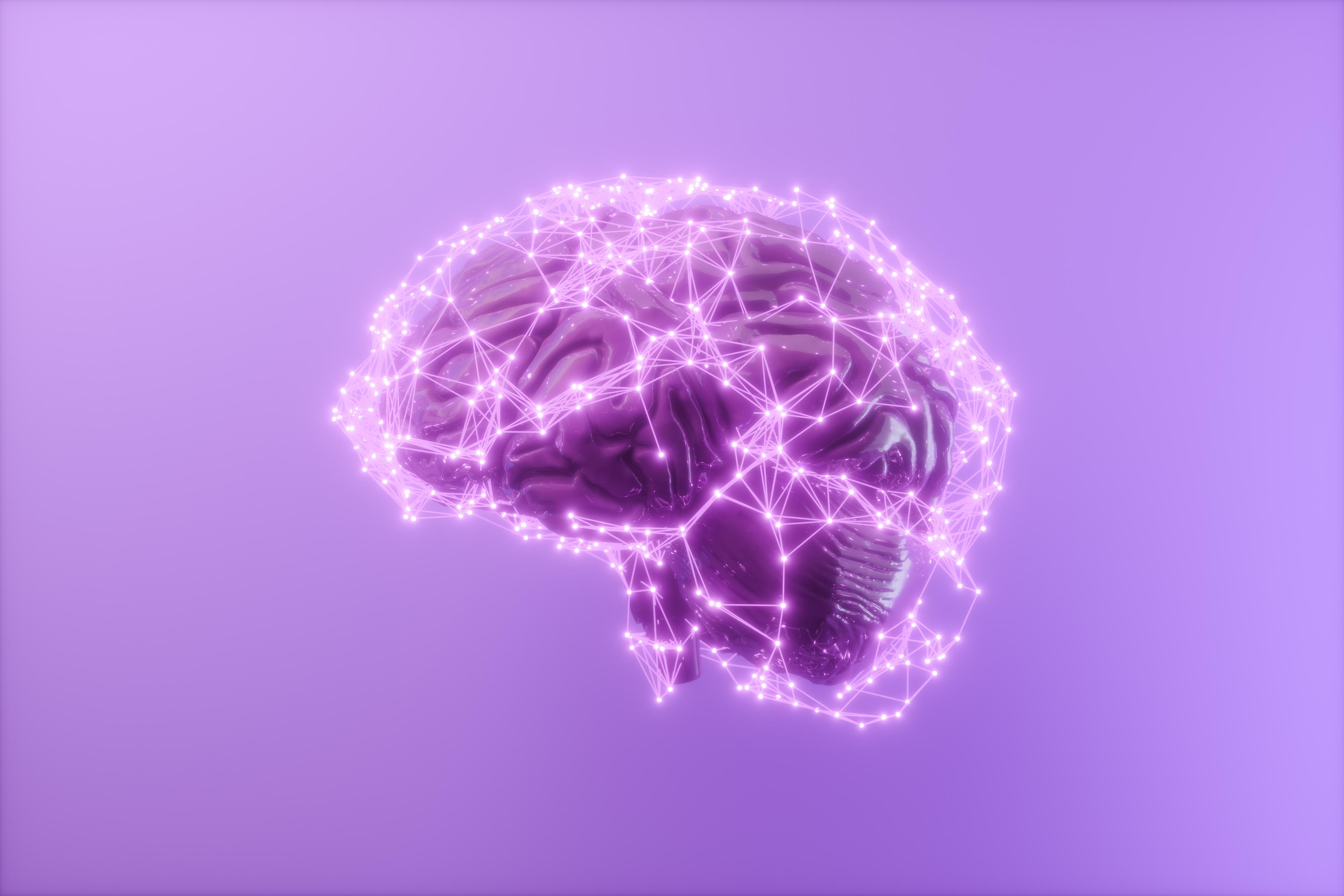
Helping someone with an eating disorder can be difficult, to say the least. In addition to all the other challenges of accessing high-quality treatment, there’s also the fact that many people with an eating disorder don’t want treatment in the first place. While you’re focused on their best interests, the eating disorder may have caused cognitive changes that make them believe their behaviors are normal, or even positive. When someone is struggling with an eating disorder, it’s important to get them help as soon as possible, as earlier intervention is associated with better outcomes and fewer complications—at the same time, the harder you push, the harder they may resist. But don’t despair and, above all, do not give up.
If your loved one refuses eating disorder treatment, keep reading. First we’ll explain why they might resist treatment, then we’ll discuss various strategies to help encourage your loved one to seek the care they need. Whether you’re supporting a child, a teen, or an adult with an eating disorder, these tips will help you help them, even if that’s not initially what they want.
Understanding why someone might refuse treatment
Two words help explain why people with eating disorders may resist treatment: anosognosia and egosyntonic. While both are tongue-twisters, they have fairly straightforward definitions that shed some light on what might be going on in the mind of someone who’s struggling.
Anosognosia: lack of awareness of the eating disorder
Anosognosia is an ill patient’s belief that they are not, in fact, ill. “Anosognosia is a common eating disorder symptom,” says Equip therapist lead Lainy Clark. “It’s also generally called a ‘lack of insight,’ and results in a person’s inability to recognize the need for help.”
Someone with anosognosia isn’t trying to be difficult: regions in their brain actually change, causing their impaired self-perception. This can help explain why approaches like family-based treatment (FBT) are particularly effective. The person with the eating disorder doesn’t need to be aware of their condition in order to benefit from the treatment.
Egosyntonia: alignment with the eating disorder
Eating disorders can sometimes be egosyntonic, which means they are aligned with a person’s self-image, values, and feelings. So someone with an eating disorder might know that they have an eating disorder, but not want to get rid of it. Of course, it’s only the distortions of the eating disorder brain that make someone feel aligned with the values of their disease, but given the stranglehold an eating disorder has on a person’s mind, this feeling can be quite powerful.
“Without any intention to do so, many patients automatically go to minimizing symptoms and the need for intervention,” says Jenna Robinow, LMSW a therapist at Equip. “Part of anorexia, for example, is ambivalence toward its negative impact on a person's health. Malnutrition gets in the way of clearly seeing the urgency of getting treatment. In that sense, it can be unfair to assume that someone in the throes of an eating disorder is going to be on board from the start.”
How treatment resistance might show up
Resistance to eating disorder treatment can manifest in many ways. You may notice emotional, behavioral, physical, or psychological signs and symptoms, or some combination of several or all of these.
“The most common form of resistance is emotional dysregulation resulting in pushback, outbursts of anger or rage, and crying,” Clark says. She adds that your loved one might also exhibit an unwillingness to participate in treatment sessions, aggression, or increased hostility toward others.
In addition to emotional outbursts and aggression, Equip dietitian Tanya Hargrave-Klein says many patients may plead to get out of treatment by promising to attempt recovery on their own. Others may throw food, curse at their support network, or give loved ones the silent treatment. “This might include not returning text messages, not answering their phone, or not acknowledging support people in person,” she says.
While it’s tough to say exactly how frequently this kind of opposition occurs, Hargrave-Klein says she sees it quite often. “It’s expected for a loved one to experience resistance to engaging in treatment,” she says. “It’s also very typical for a loved one to want treatment one moment and then be opposed to it the next moment.”

Effective strategies to support a loved one
So, what do you do if someone you love refuses eating disorder treatment? While there’s no one-size-fits-all strategy that will work for everyone, there are some tried and true tactics that can help you gently encourage someone who is struggling in the right direction.
Acknowledge their feelings and concerns
“It’s helpful to acknowledge what you are observing and validate your loved one’s feelings,” Hargrave-Klein says. “That might sound something like, ‘I can see that you don't want to start treatment. That makes sense because it feels scary, and because you don't know what to expect, and because it isn’t something your friends are having to do.’”
You can empathize with their experience while still encouraging eating disorder treatment. Express that you care about them and their feelings, and validate how hard it must be.
Use open and honest communication
It can be difficult to talk about eating disorders, but treatment requires ongoing conversation. To open up the discussion, it helps to come prepared. Educate yourself about the various eating disorder treatment options, as well as the psychological components of eating disorders that can make treatment feel scary.
“Help your loved one fact check or reframe some of their greatest fears about stepping into treatment,” Robinow advises. “Processing and getting curious about their resistance may diffuse some of their fears, which feel enormous in their head but may be broken down into more manageable hurdles that can be overcome with support.”
As your loved one talks, listen without judgment. This will make it more likely that they’ll continue talking to you or maybe even initiate a conversation with you another day. Remember, this probably isn’t a one-and-done discussion—you may need to have several talks together, so keep the lines of communication open and don’t get discouraged if the first few conversations don’t go far.
Problem-solve collaboratively
Work with your loved one to come to a solution rather than trying to force them toward treatment. Do this by allowing unconditional space for them to express their feelings, expressing your concerns in a nonjudgmental way, and then working together to find a plan you both feel good (or at least okay) about.
“Don't assume you know how your loved one is feeling,” Robinow says. “Using ‘I’ statements, tell them what you are noticing in their behavior and allow them to tell you what their internal experience is like. This may support a more collaborative effort.”
Practical steps to encourage treatment
Helping a loved one understand the need for treatment may take a significant amount of time, but Clark says it’s important to continue focusing on the aspects of the journey within your control. “We can see continued resistance and lack of insight for months during weight restoration,” she says. “Hoping your loved one will ‘get it’ and be receptive to treatment might not be realistic. Instead, it’s more helpful to focus energy on being loving, empathetic, and supportive while also speaking truth and remaining firm in what you are asking your loved one to do.”
Here are some tips that can help you do that:
Seek professional guidance
Helping a loved one on your own might be possible, but it’s usually too much for a non-professional to tackle. Effective eating disorder treatment almost always requires working with a multidisciplinary team of healthcare professionals who can support both you and your loved one. A physician may be able to refer you to therapists, dietitians, doctors, and other eating disorder specialists for your loved one, and talking to your own therapist can help you work through the various emotions you may be feeling throughout the recovery journey. You can also choose to work with a comprehensive treatment program like Equip, where you and your family will be connected with a dedicated care team.
Explore treatment options
Some treatment options require your loved one’s voluntary participation, but others are effective despite reluctance. “The temptation to use logic and rationale to get our loved ones to understand their need for treatment is understandable, but we must remember the effects of malnutrition and anosognosia will result in our loved one being unable to access these facts in the beginning,” Clark says. “The symptom of anosognosia makes evidence-based care like family-based treatment (FBT) an accessible and effective option for recovery. The home environment inherently helps facilitate a loving and firm recovery journey, despite the patient’s lack of insight.”
While FBT isn’t an option for adult patients, family and other loved ones are often involved in other treatment modalities, like CBT-E. You can help guide your loved one toward treatment by compiling a list of potential treatment approaches and settings, including residential, partial hospitalization programs, outpatient treatment, and virtual care.
Set boundaries and provide support
At some point, you may need to set a boundary in order to support your loved one. This may mean refusing to do anything that enables or feeds into the eating disorder, or it may mean seeking treatment for your loved one even if they don’t want it. In some situations, you may need to make ultimatums that feel harsh in order to help your loved one get the treatment they need. Stay firm and confident in your choices, emphasizing that you are doing this because you care for them.
Understanding the importance of early intervention
No matter how reluctant your loved one may be about treatment, keep trying. Research shows that the sooner someone enters treatment, the less likely they are to struggle long-term with an eating disorder. Early intervention also increases the odds of a full recovery and encourages help-seeking behaviors.
Advocacy and support networks
You don’t have to go through this alone. Advocacy and eating disorder support groups are here to not only provide education but also help you realize you’re not the only one facing resistance when helping someone with an eating disorder. Also, many people find it beneficial to hear what worked for others.
Here are some resources for ongoing support and education:
You can also sign up for the Equip newsletter to learn about support group opportunities and get other information and resources about helping someone with an eating disorder..
The Equip takeaway: have hope
When your loved one refuses eating disorder treatment, you may feel scared, frustrated, or unsure what to do next. But don’t give up, because your support is one of the most important things to help them recover.
Continue to keep the conversation about treatment open. You can validate their experience and concerns while also educating them about the very real risks of eating disorders and the various treatment options available. You can also help them find providers, make appointments for them, or be their personal Uber to appointments to help reduce any friction or excuses for not getting help. No matter what, be persistent, because the sooner your loved one enters treatment, the better.

FAQ
What are common reasons why someone might refuse treatment for an eating disorder?
There are a number of different reasons that someone might resist treatment for an eating disorder. These may include that they don’t think they are ill, or that they believe the eating disorder aligns with their self-image, values, and feelings, so they want to keep it as a part of them. They might also have fears around entering treatment.
How can families support a loved one who refuses to seek treatment?
Families can support a loved one who refuses to seek treatment by maintaining open communication, being nonjudgmental, validating their feelings, and learning about treatment options together so you can find solutions as a team.
What strategies can help in encouraging someone to accept treatment for an eating disorder?
Encouraging someone to accept treatment for an eating disorder can be challenging, in part because everyone responds differently to various strategies. Overall, it helps to educate yourself about eating disorders and the different treatments available, use “I” statements, be curious about their resistance (rather than placing any blame or blowing off their fears), and remain firm yet caring.
Are there effective treatments for eating disorders that don't require patient buy-in?
The most effective treatment that doesn’t require patient buy-in is family-based treatment for eating disorders (FBT). In this modality, a professional teaches the caregivers how to help their child regain weight (if necessary) and reduce their symptoms. This empowers parents to be active in their child’s recovery and take the reins initially to decide what their child eats and stop disordered behaviors.
What resources are available for families dealing with eating disorder treatment resistance?
Resources for families dealing with eating disorder treatment resistance include support groups and organizations like Eating Disorder Foundation (EDF), F.E.A.S.T., National Alliance for Eating Disorders, and Equip.
- Acharya AB, Sánchez-Manso JC. Anosognosia. [Updated 2022 Jun 7]. In: StatPearls [Internet]. Treasure Island (FL): StatPearls Publishing; 2023 Jan-. https://www.ncbi.nlm.nih.gov/books/NBK513361
- Gregertsen, Eva C et al. “The Egosyntonic Nature of Anorexia: An Impediment to Recovery in Anorexia Nervosa Treatment.” Frontiers in psychology vol. 8 2273. 22 Dec. 2017. doi:10.3389/fpsyg.2017.02273
- Klein, David A et al. “Eating Disorders in Primary Care: Diagnosis and Management.” American Family Physician vol. 103,1 (2021): 22-32. https://www.aafp.org/pubs/afp/issues/2021/0101/p22.html
- Hyam, Lucy et al. ““Early intervention isn't an option, it's a necessity”: learning from implementation facilitators and challenges from the rapid scaling of an early intervention eating disorders programme in England.” Frontiers in Health Services vol. 3 (2023). doi:10.3389/frhs.2023.1253966
- Koreshe, Eyza et al. “Prevention and early intervention in eating disorders: findings from a rapid review.” Journal of Eating Disorders vol. 11, 38 (2023). doi:10.1186/s40337-023-00758-3








